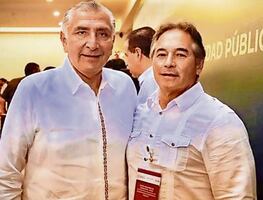Latin America's main oil exporters on Friday called on both OPEC and non-OPEC nations to take action to stabilize oil markets, in a timid statement that did not explicitly back an output freeze or offer more aggressive proposals to shore up slumping prices.
Delegations from Colombia, Ecuador, Mexico and Venezuela met in Quito in the run-up to a meeting in Doha on April 17 that oil exporters hope will help reduce a supply glut that has driven global oil prices down by around 60 percent since mid-2014.
The countries in a statement agreed to "call on OPEC and non-OPEC oil producers ... to take necessary actions to stabilize the world petroleum market to improve prices for the benefit of producer and consumer nations."
They also agreed to create a regional dialogue mechanism on oil and gas reserves, production, demand and inventories.
The meeting was the first significant sign that non-OPEC producers Colombia and Mexico may be involved in an effort to bolster prices.
However, Mexico said it was only participating as an "observer" to share information and its energy ministry pointed out that the country's crude output had already declined by more than a million barrels per day in the last 12 years.
Mexican officials have said they cannot freeze or cut output in any kind of coordinated strategy to support prices. Mexico's oil output has been falling for over a decade due to its ageing fields and under-investment.
Venezuela's Oil Minister Eulogio Del Pino said 18 countries had confirmed they would be at the Doha meeting, with two or three others committing verbally.
Russian Energy Minister Alexander Novak said Friday he hoped producers will agree in Doha to freeze output.
Russia, Saudi Arabia, Venezuela and Qatar agreed in February to freeze production at January levels, but said at the time the deal was contingent on other producers joining in.Latin America's main oil exporters on Friday called on both OPEC and non-OPEC nations to take action to stabilize oil markets, in a timid statement that did not explicitly back an output freeze or offer more aggressive proposals to shore up slumping prices.
Delegations from Colombia, Ecuador, Mexico and Venezuela met in Quito in the run-up to a meeting in Doha on April 17 that oil exporters hope will help reduce a supply glut that has driven global oil prices down by around 60 percent since mid-2014.
The countries in a statement agreed to "call on OPEC and non-OPEC oil producers ... to take necessary actions to stabilize the world petroleum market to improve prices for the benefit of producer and consumer nations."
They also agreed to create a regional dialogue mechanism on oil and gas reserves, production, demand and inventories.
The meeting was the first significant sign that non-OPEC producers Colombia and Mexico may be involved in an effort to bolster prices.
However, Mexico said it was only participating as an "observer" to share information and its energy ministry pointed out that the country's crude output had already declined by more than a million barrels per day in the last 12 years.
Mexican officials have said they cannot freeze or cut output in any kind of coordinated strategy to support prices. Mexico's oil output has been falling for over a decade due to its ageing fields and under-investment.
Venezuela's Oil Minister Eulogio Del Pino said 18 countries had confirmed they would be at the Doha meeting, with two or three others committing verbally.
Russian Energy Minister Alexander Novak said Friday he hoped producers will agree in Doha to freeze output.
Russia, Saudi Arabia, Venezuela and Qatar agreed in February to freeze production at January levels, but said at the time the deal was contingent on other producers joining in.













